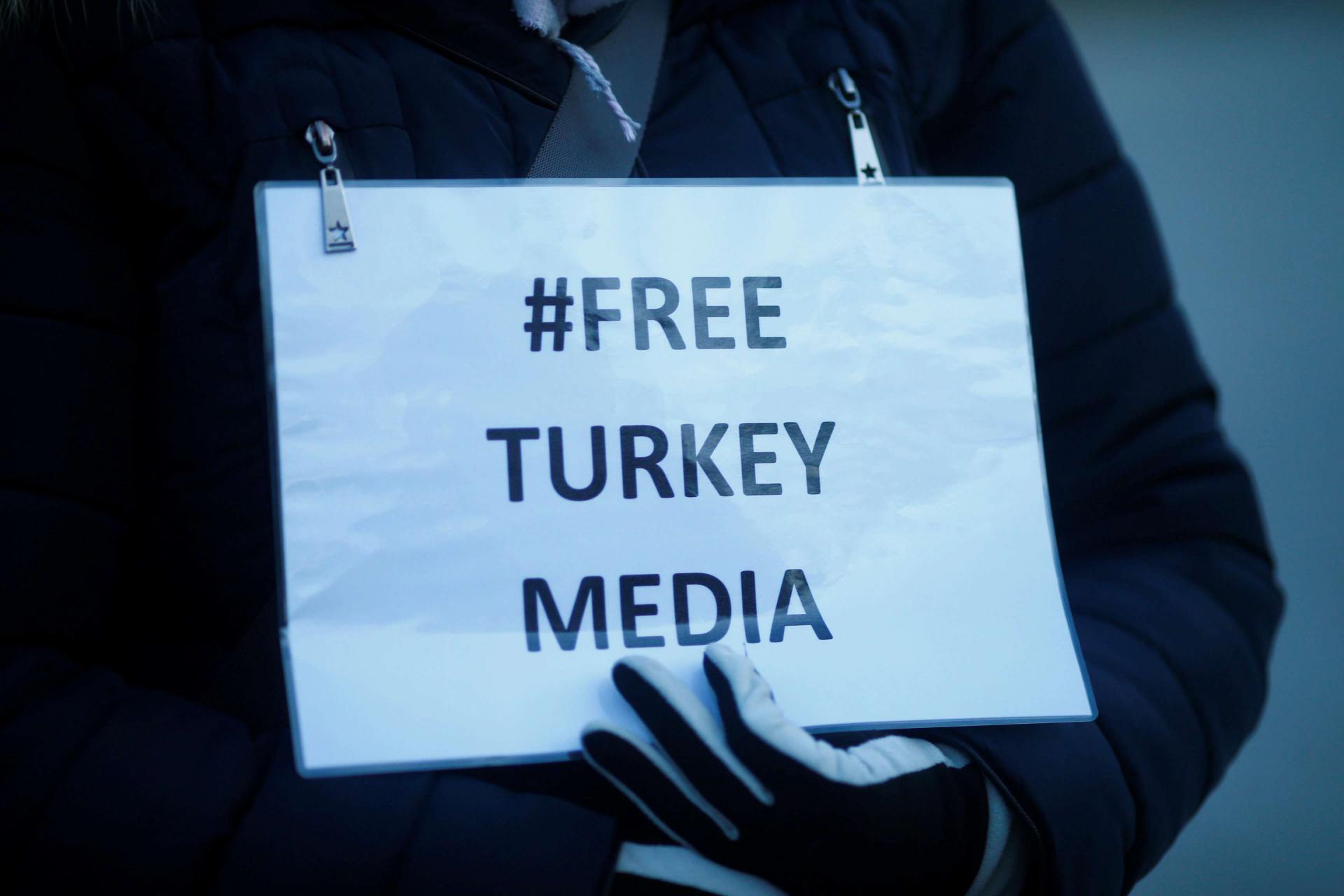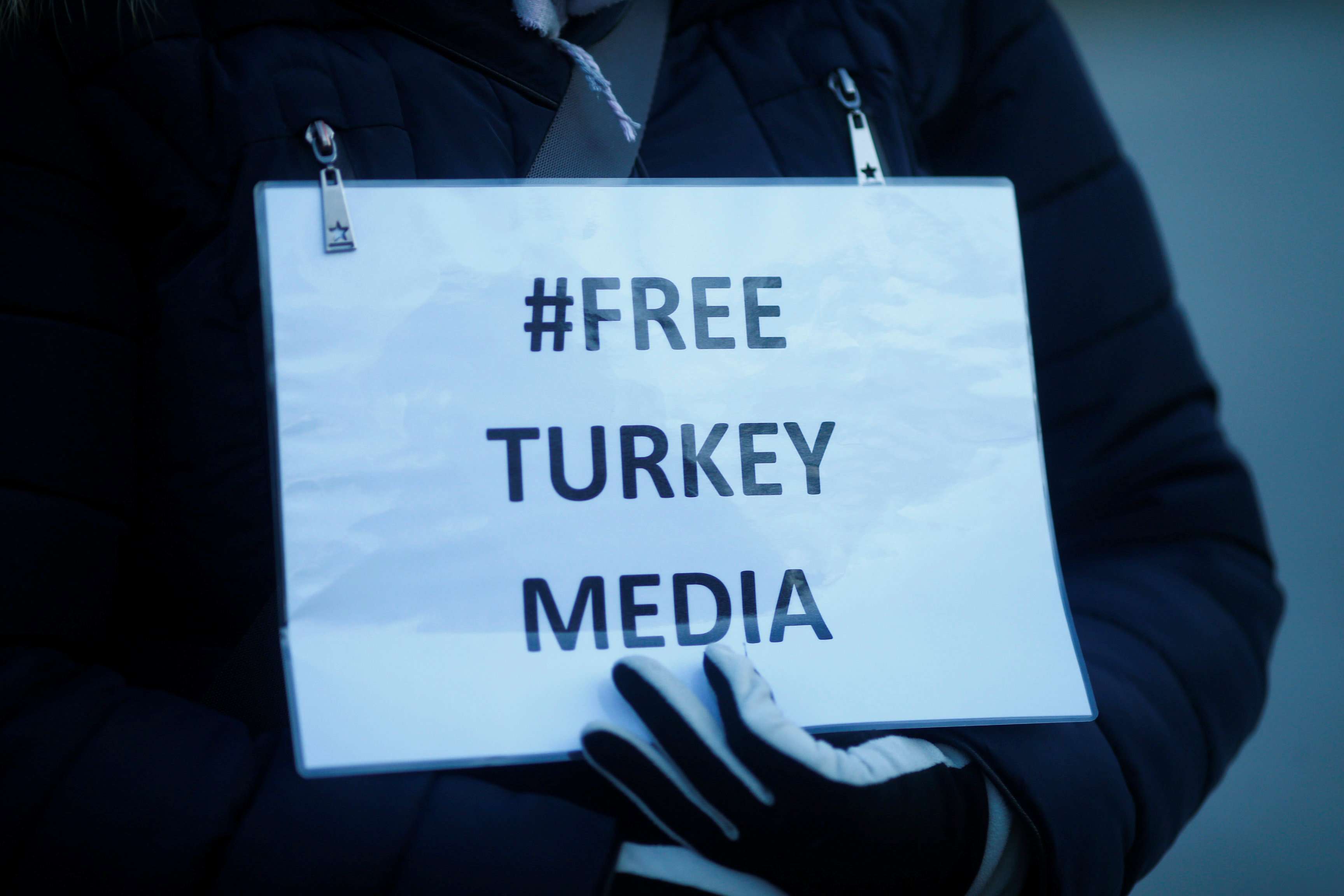Turkey seeks jail terms for two Bloomberg reporters
ANKARA - Turkish prosecutors are seeking a jail term of up to five years for two Bloomberg reporters who had written about how authorities responded to last summer's currency collapse, the US-based news agency reported.
It is a crime in Turkey to publish fake news or rumours about individual banks, but Turkey's opposition claims the latest prosecutions are an attempt to stifle dissent ahead of a rerun of mayoral elections in Istanbul on June 23.
The charges against the reporters come after Turkey's banking regulator agency, BDDK, complained about an August 2018 Bloomberg story on the currency crisis amid tensions with the United States. The article was about the effects of a sharp decline in the Turkish lira and how authorities and banks were responding.
Worries over the Turkish central bank's independence and the country's tense ties with Washington sparked a currency crisis last year in which the lira shed nearly 30%.
Prosecutors accuse the two reporters, Kerim Karakaya and Fercan Yalinkilic, of trying to undermine Turkey's economic stability, Bloomberg said late Thursday.
The news agency's editor-in-chief John Micklethwait said: "We condemn the indictment issued against our reporters, who have reported fairly and accurately on newsworthy events. We fully stand by them and will support them throughout this ordeal."
An Istanbul court accepted the indictment and the first hearing is set for September 20.
Turkish media reported 50 others, including journalists and columnists, were also indicted for commenting on the currency crisis on their social media accounts.
In April, President Recep Tayyip Erdogan criticised Western media coverage of the country's economy after a Financial Times report questioned the central bank's management of foreign currency reserves.
Turkey's economy has slipped into its first recession in a decade after a currency crisis last year battered the lira, leaving foreign investors jittery over the government's policies to manage growth.
Last year, Turkey's interior ministry said it had identified 346 social media accounts carrying posts about the exchange rate that it said created a negative perception of the economy. It said it would take legal measures against them but did not specify what these would be.
Dismal reputation
The prosecution is the latest against journalists and opponents of president Erdogan, whose ruling AK Party has earned a dismal reputation on press freedom.
Many cases against journalists accused of disseminating false information and insulting Erdogan have resulted in the imprisonment of defendants, or long periods of detention ahead of trial.
On Thursday, Yavuz Selim Demirag - a columnist for a Turkish nationalist daily - was jailed for insulting the president. In May, Demirag had been caught up in a wave of assaults against critical journalists and was beaten by a group of men with baseball bats.
The number of cases launched against people suspected of insulting the president, a crime in Turkey, has increased dramatically since Erdogan came to power in 2014. The charge carries a maximum sentence of four years but could be longer if the insult was made publicly.
Also on Thursday, three Turkish journalists employed by dissident media outlets were released from prison. Two of the journalists - left-wing Etkin News Agency editor Semiha Sahin and reporter Pinar Gayip - had spent 14 months each in pre-trial detention over alleged links to an outlawed Kurdish militant group and disseminating "terrorist propaganda".
Meanwhile the wife of one of Turkey's best-known exiled journalists said Friday she had been reunited in Berlin with her family after three years of being denied a passport.
Dilek Turker Dundar shared an image on Twitter saying she was back with her husband, Can Dundar, former editor-in-chief of Turkish opposition daily Cumhuriyet.
He fled to Germany after being convicted in 2016 on charges of revealing state secrets in a story about arms shipments to Syria that deeply angered the Erdogan government.
Cumhuriyet published a video in 2015 showing an arms shipment being intercepted on the way to Syria, which it claimed was destined for Syrian rebels. Erdogan warned Dundar at the time that he would "pay a heavy price" for the report.
The frequent prosecution of press workers has made Turkey the world’s leading jailer of journalists for the past three years running.


